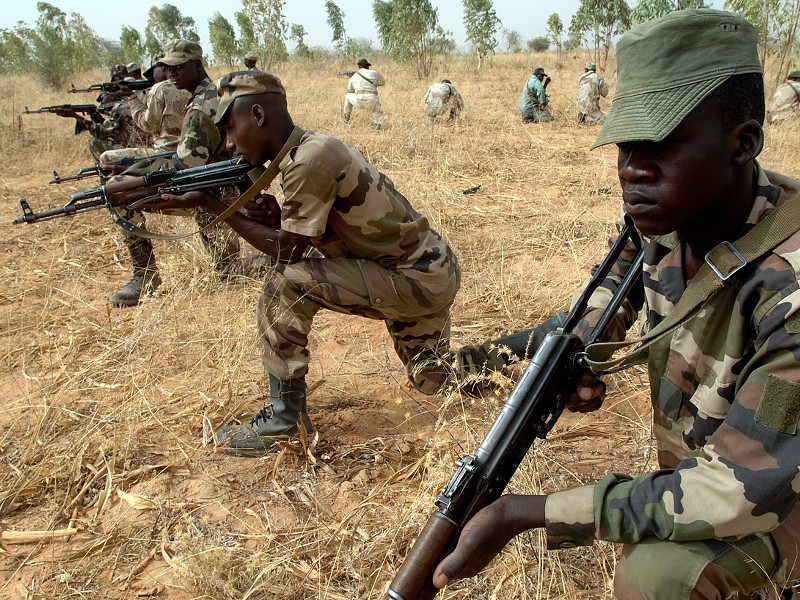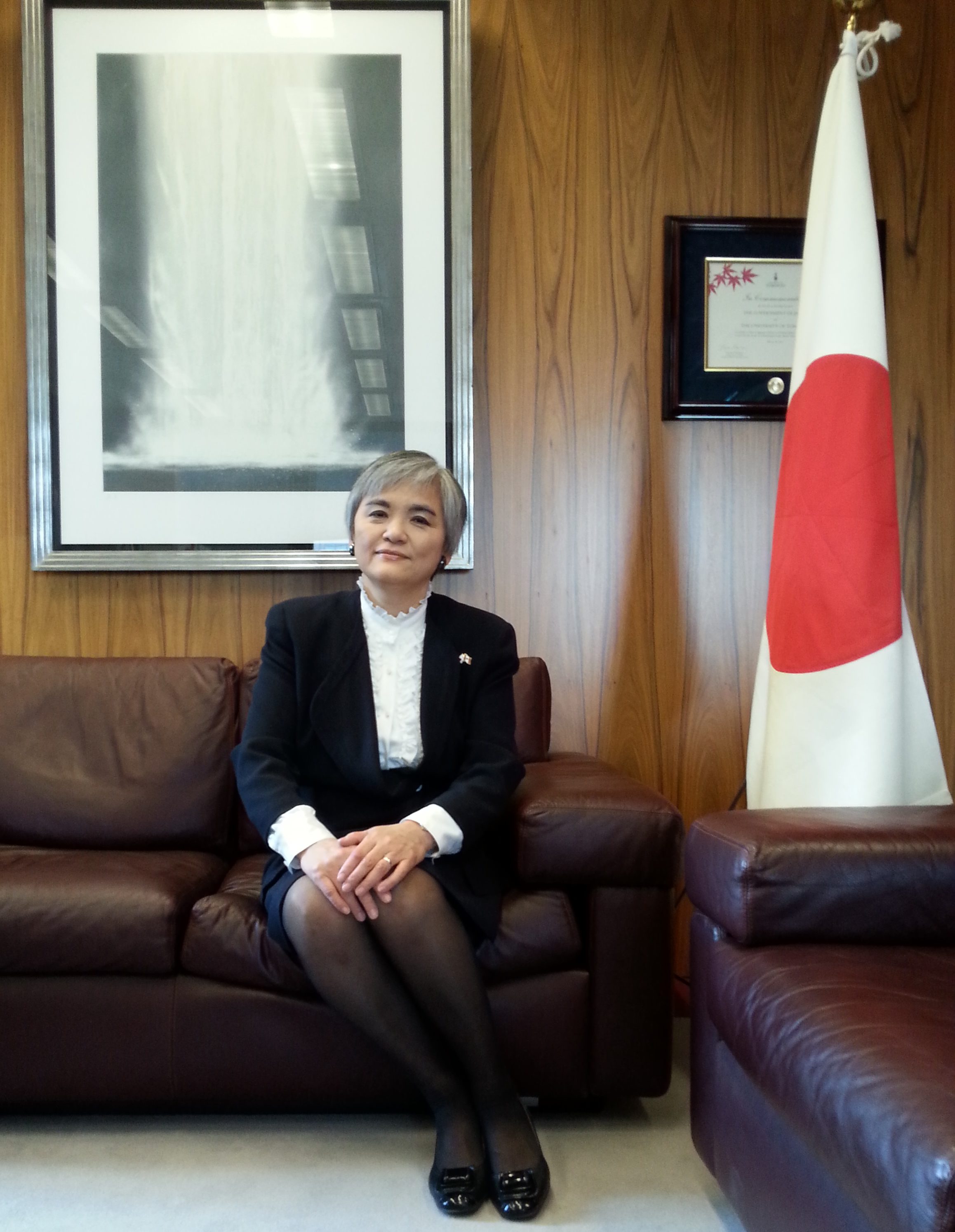In July, Niger’s democratically-elected president, Mohamed Bazoum, was removed from office by a coup d’état led by General Abdourahmane Tchiani, the commander of the presidential guards, who appointed himself head of the country’s new military government. His official reason for his actions was his allegation that Bazoum’s government was not managing the deterioration of the security situation in West Africa which has gotten worse since the Russian Wagner group spread in West Africa, especially in Niger. Niger’s democratic government was collaborating with France in order to prevent Wagner from spreading. The military junta has taken over because it thinks it can manage the situation much better and without foreign aid. The unknown factor is what they mean to do by taking over the situation: Will they actually be in alliance with Wagner, or in conflict against them? In either case, the international community should stop Wagner from spreading and find ways to reinstall democracy.
The international community took financial measures against the coup, which adversely affected the Nigerien people, and it did not prompt the Nigerien military to reinstall democracy. ECOWAS (Economic Community of West Africa, which consists of 15 states) has suspended all commercial and financial transactions between its members and Niger. The European Union has cut off its financial support, and France, which formerly colonized Niger before 1960, has suspended all development aid and budget support. The United States has stopped its assistance and cooperation until Tchiani resigns.
These sanctions have restricted humanitarian aid from reaching the country. Over 3 million Nigeriens are struggling with food security. The education system is left in limbo, which could cause children to drop out, exacerbating poverty and providing potential terrorist recruits. Niger has received around $1.8 billion in aid in the last few years; half its population lives on less than $2.5 a day. Suspending humanitarian aid will only worsen living conditions for the Nigeriens, and it will not likely help to re-democratize the country. The international community should take measures to suspend financial assistance that goes directly to the military government, but it should find ways to help the Nigerien people through humanitarian organizations such as the United Nations, in particular, along with other NGOs to help secure food and education for the Nigerien people. This could be done through a resource-for-food program, especially in regard to Niger’s chief export – uranium. The program could be similar to Iraq’s oil-for-food program, which kept humanitarian aid flowing to that country’s civilian population during the 1990s, when Saddam Hussein’s regime was under sanctions.
The security picture is a complicated one. France is bringing back their 1500 troops that helped Niger combat Wagner; 64% of the Nigerien population opposes using foreign forces to secure the country. Niger’s new military leaders do not want any French military aid to the country. The only foreign military presence left in the country is American. The United States currently has two bases, one of which is a drone base, and around 1100 soldiers in the country. These forces need to proceed with caution, avoiding either mission creep or provoking protests by the Nigerien people. However, if Washington withdrew its troops, the country would be left completely in the hands of the military junta and the Wagner mercenary group. For its part, ECOWAS has demanded that Bazoum should be reinstated as president, or else the bloc would take all measures to restore constitutional order, which may include the use of military force if necessary.
Niger is in a critical situation, and stability there is tenuous. It is one of the world’s largest uranium exporters, and France’s third largest uranium supplier, which is one reason France has maintained a presence in that country for so long. A country with these natural resources could make it a flashpoint of security competition in the region. If ECOWAS intervened using military force, a West African war could break out between ECOWAS and Niger’s military junta government and its allies, Mali, Burkina Faso, and possibly the Wagner mercenary group. Such a war will lead to thousands of deaths, a humanitarian crisis, and a disruption of uranium production worldwide. Alternatively, if ECOWAS does not take military action against Niger, but the United States decides to withdraw its troops, the country will be left in the hands of the military and the Wagner mercenaries group, ending any hope of reinstalling democracy and facilitating the spread of the Wagner in the rest of the Sahel region. The U.S. military bases in Niger are strategically valuable. Washington must not intervene with total military force, otherwise possible conflicts could break out between American forces and Wagner, but at the same time, it needs to control the region in a way that prevents Wagner from spreading throughout West Africa.
In order to prevent any significant crisis from happening in Niger, diplomatic talks should be commenced between France, ECOWAS, the United States, and the new Nigerien government in order to find solutions for how to guarantee Niger’s security without the possible escalation of war and to come up with a plan for achieving the reinstatement of democracy. This requires that all parties devise a cooperative strategy to find a way to end the Wagner mercenary group’s occupation in some areas without any necessary use of strong forces, so that asymmetrical warfare does not occur.
If the international community helps the current military government restore security, then the junta should relinquish power and reinstate a democratic government. If they refuse to do so or if evidence of alliance between Wagner and the military junta is discovered, then they will have been exposed as having seized power on false pretences and then the international community can consider stronger measures to coerce the military regime to relinquish that power. Finally, with the help of the UN, all these governments should figure out ways and systems to enhance humanitarian aid for the Nigerien people in terms of financial support, philanthropic organizations, security and education so that the people do not suffer the consequences of its military government. The fate of the Nigerien people lies in the hands of the international community.
Photo: U.S. Navy photo by Mass Communication Specialist 1st Class Michael Larson, Public domain, via Wikimedia Commons
Disclaimer: Any views or opinions expressed in articles are solely those of the author and do not necessarily represent the views of the NATO Association of Canada.




